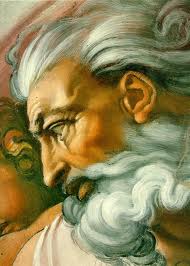 Why do we worship God? It’s a simple enough question, but the answer to it can have staggering consequences on your faith and your life. And I was reminded of some of the possible answers when I reflected upon today’s readings.
Why do we worship God? It’s a simple enough question, but the answer to it can have staggering consequences on your faith and your life. And I was reminded of some of the possible answers when I reflected upon today’s readings.
This reflection began with a couple of lines from Daniel today, where Shadrach, Meshach, and Abednego answered King Nebuchadnezzar as he was about to put them into a furnace if they don’t worship Nebuchadnezzar’s idol: “There is no need for us to defend ourselves before you in this matter. If our God, whom we serve, can save us from the white-hot furnace and from your hands, O king, may he save us! But even if he will not, know, O king, that we will not serve your god or worship the golden statue that you set up.”
At a first read, it seems like a simple declaration of the three youths’ obedience to God. But look closely; there’s something amazing in there, after they ask, “[May God] save us!”: “But even if he will not . . .” In other words, while they surely have a preference for how they want this situation to resolve (that is, not by being burned alive), they fully acknowledge that God may not save them, for whatever reasons He has.
One of the biggest mistakes I feel that some Christians have is that they view God as being a kind of wish-granting genie, who will supply whatever worldly comforts, desires, or needs that they want. I think this view stems from reflections on Christ’s life on Earth – where he performed many miracles and fixed many problems for those who were in need – and also from selective passages from the Gospels (such as Matthew 17:20’s “faith of mustard seed” or Matthew 6:33’s “all of these things will be given to you”). However, I fear that those who think of God in this way may be setting themselves up to have their faiths severely shaken. Yes, God can save us from impossible situations or heal incurable diseases, and He has . . . but it is not assured that He will.
And that’s okay! Jesus has already given us what’s most important in this world: forgiveness of our sins, a surefire path to salvation and eternal life with God, and – thanks to the Holy Spirit – the means and will to spread that message to others. If we are suffering in body or lacking in possessions, God certainly may relieve us of our pains or satisfy our needs – and it’s a fine thing to wish for – but He may also merely provide us with the strength and comfort to endure these woes with dignity and peace.
Again, this doesn’t mean we shouldn’t pray for what we need or even want; we should go to God with all our concerns! Indeed, Shadrach, Meshach, and Abednego were saved from a fiery demise, thanks to God. But the most important thing we need from God is safety from that other fiery fate, which he already promises those who remain in Him. And if we’re secure in our faiths, we have to accept the possibility that God may not seem to give us what we want, for whatever reasons He deems fit. Part of our humility as believers has to be that we trust God.
So why do we worship God? Because it is the right thing to do. Because He deserves it. Because He is Good. This truth was also revealed partly by Jesus in today’s Gospel selection from John: “If God were your Father, you would love me, for I came from God and am here; I did not come on my own, but he sent me.” We should love Jesus because He was sent by God; we love and trust God because there should be no other rational choice.
Perhaps the encapsulation of this truth is best shown with today’s responsorial psalm, taken from Daniel. There is no tribute to the great power that God wields, no pleas to smite nonbelievers, no revelry in the wonderful miracles that God has worked. Rather, it’s simply honoring God for being blessed, praiseworthy, and exalted. May today’s response continue to ring in my heart and mind as I reflect on how awesome God is: Glory and praise for ever!
Today’s Readings for Mass: Dn 3:14-20, 91-92, 95; Dn 3:52, 53, 54, 55, 56; Jn 8:31-42
